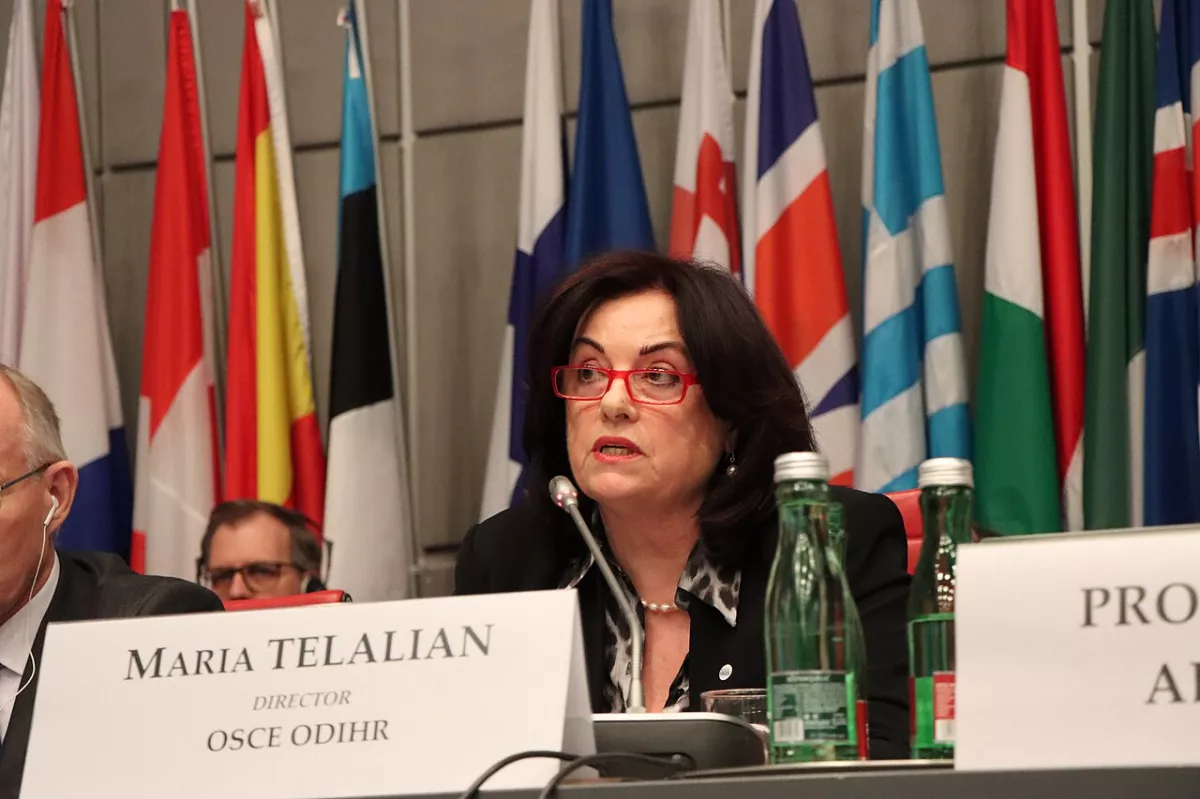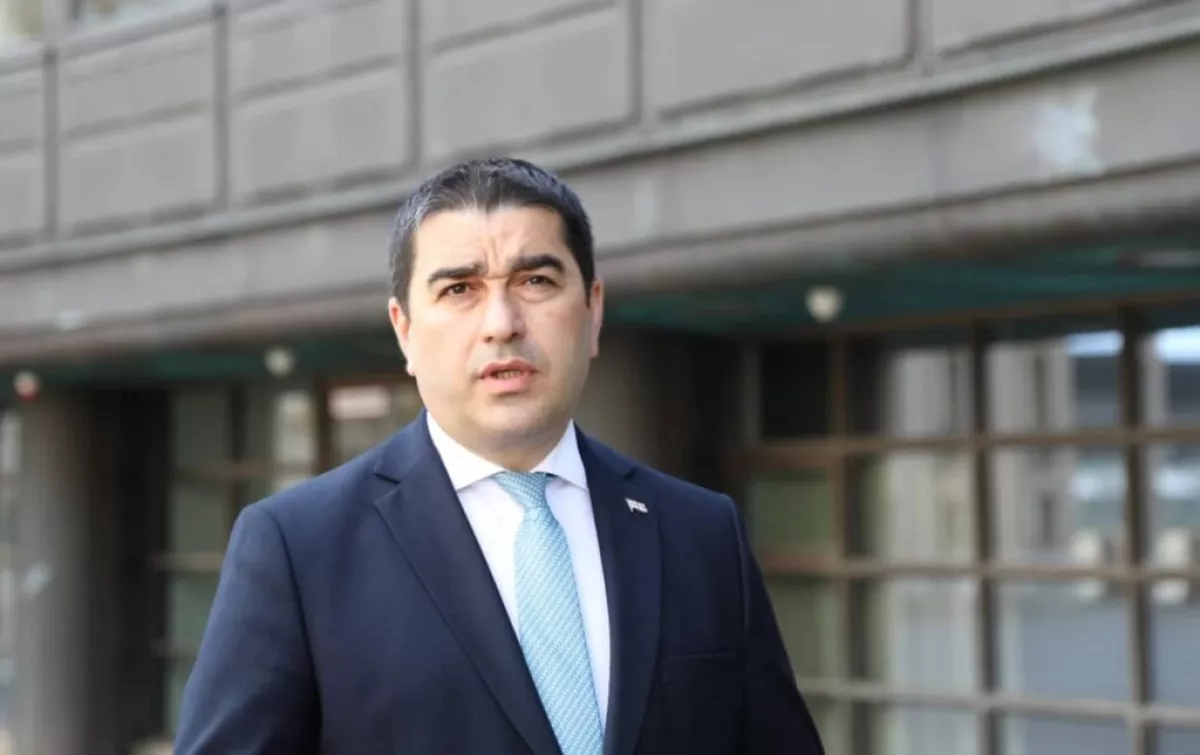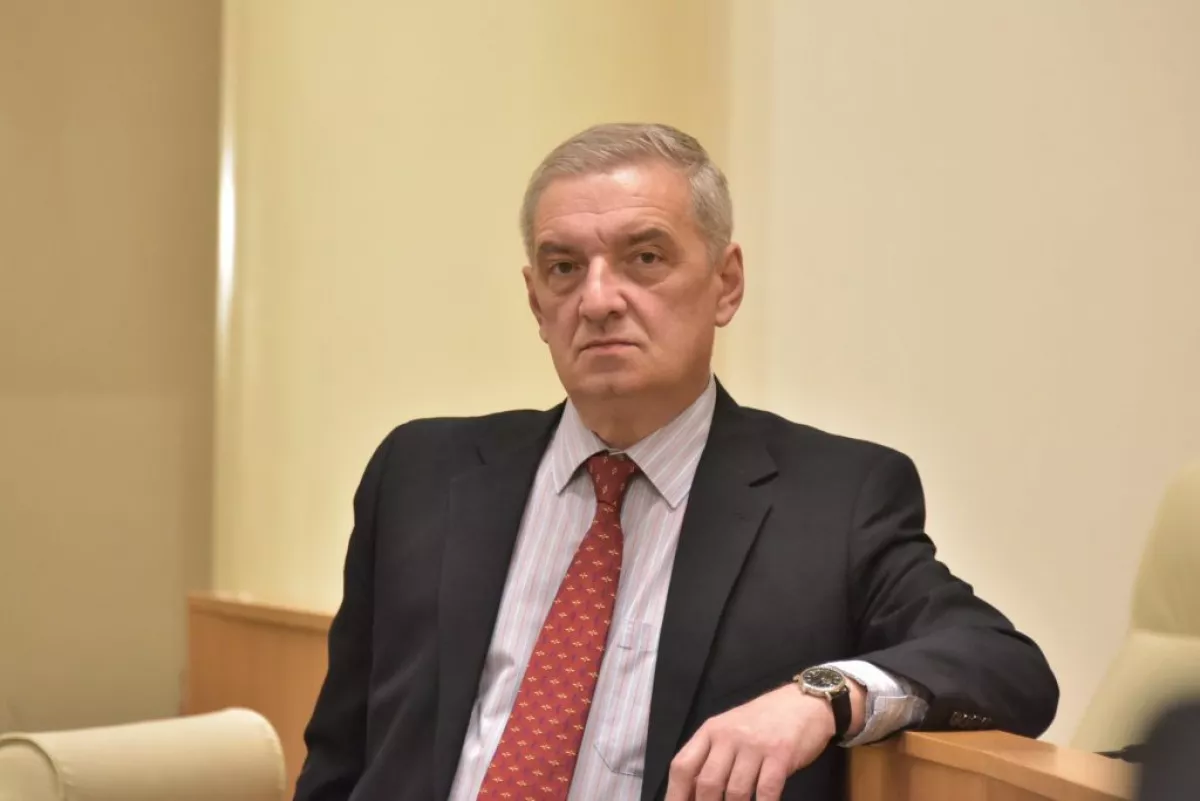Elections without Europe OSCE refuses to observe Georgia’s October vote
On 6 September, the Georgian authorities sent an official invitation to the OSCE Office for Democratic Institutions and Human Rights (ODIHR) to dispatch its mission to observe the local elections scheduled for 4 October 2025. The OSCE, however, declined, considering the invitation to have come too late (less than a month before the vote).

It appears that ODIHR/OSCE had no initial intention of sending its mission to observe Georgia’s local elections. After all, it is already evident that these elections will in fact serve as a “referendum of full confidence” in the ruling Georgian Dream party, with a predictable outcome. According to a new poll by GORBI, published by Imedi TV, Georgian Dream’s rating has risen to an unprecedented 65.9%. The nearest “competitors” among opposition parties trail far behind: Gakharia – For Georgia at 10.7% and Lelo – Strong Georgia at 10.4%.
Under such conditions, OSCE observers would have had little else to record but the Georgian public’s overwhelming support for the current government and the complete marginalisation of the opposition. This, however, is something Europe does not wish to acknowledge. Instead, it continues to assure the public that a large portion of the Georgian population supposedly supports the opposition’s “pro-European” protests.
It should be recalled that initially a significant part of the pro-Western opposition sought to boycott the local elections, demanding repeat parliamentary elections under “international monitoring” — in reality, under external control. According to opposition leaders, the parliamentary elections held on October 26, 2024, in which the Georgian Dream party won a convincing victory, were allegedly “rigged.”
The opposition had no chance of winning the local elections — and still does not. For this reason, the “irreconcilable” pro-Western opposition views the elections solely as an additional means of legitimising Georgian Dream’s rule. For them, it is nothing more than an excuse to declare “fraud,” bring supporters back onto the streets, and attempt to stage a “revolution.”
Had the entire opposition boycotted the elections, the OSCE would have had a formal pretext not to send a mission, thereby effectively supporting the boycott. This is why the Georgian authorities were in no hurry to invite OSCE observers in advance. However, a split emerged within the opposition: two of the four parties that had crossed the electoral threshold in the parliamentary elections decided to participate in the local vote. After the registration of Lelo – Strong Georgia and Gakharia – For Georgia, the Georgian government extended an invitation to ODIHR/OSCE to observe the October 4 elections.
ODIHR, however, immediately declared that an invitation made less than a month before the vote “leaves insufficient time for credible and meaningful observation,” and therefore no mission would be deployed.

“Transparent and credible election observation requires thorough preparation and an ability to access key stages of the election process, in line with our comprehensive methodology. Regrettably, the Georgian authorities’ decision to invite us at such a late stage prevents meaningful observation, and ODIHR will not be in a position to deploy an election observation mission,” stated ODIHR Director Maria Telalian.
At the same time, it was noted that ODIHR/OSCE hopes to continue its “longstanding co-operation with Georgia’s institutions and civil society to strengthen democracy and human rights.” In essence, the OSCE once again signalled its support for the pro-Western opposition.
“If the OSCE/ODIHR had truly wished to observe, there would have been enough time to do so,” said Parliament Speaker Shalva Papuashvili. Commenting also on the Swedish Foreign Ministry’s expressions of concern over the absence of OSCE observers at Georgia’s elections, he stressed that elections in another country do not fall within the competence of Sweden’s Foreign Ministry.

“I saw the statement from the Swedish Foreign Ministry expressing concern that the OSCE would not be able to observe. I want to tell the public that ODIHR/OSCE has never been invited to Sweden to observe local elections — not once in history, never. Elections in another country do not fall within the competence of the Swedish Foreign Ministry. A representative of the Swedish government, Erik Ottosson, stood here on November 11 or 12, 2024, at an anti-government rally after the elections. A representative of the Swedish government refused to acknowledge the ODIHR/OSCE conclusion. A representative of the Swedish government, Erik Ottosson, called on Georgia’s radical opposition to stage a Maidan. To this day, the Swedish Foreign Ministry has not distanced itself from this call for the violent overthrow of power. This is a hypocritical statement,” said Papuashvili.
The OSCE’s decision not to send its mission to Georgia confirms the assumption that last year it was counting on the victory of a “Maidan” organised by the pro-Western opposition. Although the ODIHR/OSCE mission did not find any significant violations that could have affected the outcome of the vote in the October 26, 2024 elections, the publication of its report was deliberately delayed by nearly two months. After all, had the OSCE promptly recognised the election results, it would have been far more difficult for the opposition to organise protests under the pretext of “fraud.”
While the OSCE mission’s report was awaited in November–December 2024, Georgia’s pro-Western opposition made desperate attempts at an unconstitutional change of power, driving aggressively minded crowds of supporters into the streets and launching attacks on law enforcement officers. The ODIHR/OSCE mission’s report appeared only by December 20, 2024. By then, the authorities had managed to bring the situation under control, and it became clear that the “Maidan” was collapsing. In the end, the OSCE mission recognised the elections in Georgia, albeit with numerous reservations and remarks. The very fact of recognition worked against the opposition’s “revolutionary activity”: the protests sharply subsided. It became evident that staging a “revolution” under the pretext of “non-recognition” of the parliamentary election results was no longer possible.
Now, however, the opposition is preparing a new “Maidan” and “revolution” around the local elections scheduled for October 4, 2025, relying once again on the claim of “fraud.” And the presence of an OSCE mission — especially its recognition of the results — is not in the interest of either the opposition or its external “sponsors.” As a result, everything was done to derail the deployment of an OSCE mission, as Vice Speaker of Parliament Gia Volski, one of the leaders of Georgian Dream – Democratic Georgia, openly stated.

“Perhaps it is inconvenient for some to have proper observers of a European level present in the country at the invitation of the state, since this could have created grounds for the publication of a positive assessment of the elections,” Volski stated.
“History has not seen such pressure and bullying since the time when OSCE/ODIHR observed the parliamentary elections in Georgia and issued a positive assessment. There are assumptions that the intention here was precisely to avoid such a development,” he added.
The Central Election Commission (CEC) of Georgia has already expressed regret that ODIHR/OSCE specialists will not be observing the local self-government elections. According to CEC spokesperson Natia Ioseliani, as of September 10, 2025, 16 international and 9 local observer organisations have been registered to monitor Georgia’s local elections. In particular, electoral commissions from Jordan, Tunisia, the Maldives, Türkiye, Ethiopia, Montenegro, Bosnia and Herzegovina, South Africa, Bulgaria, Kyrgyzstan, Azerbaijan, Fiji, Hungary, Slovakia, and Armenia have registered. Electoral commissions from the Philippines, Estonia, and Albania have also applied for registration.
The presence of already registered observers is, in principle, sufficient for international recognition of the results of Georgia’s local elections. However, the opposition will most likely once again attempt to claim they are “undemocratic,” using this as a pretext for another attempt at a “revolution” and an unconstitutional change of power.
By Vladimir Tskhvediani, Georgia, exclusively for Caliber.Az








